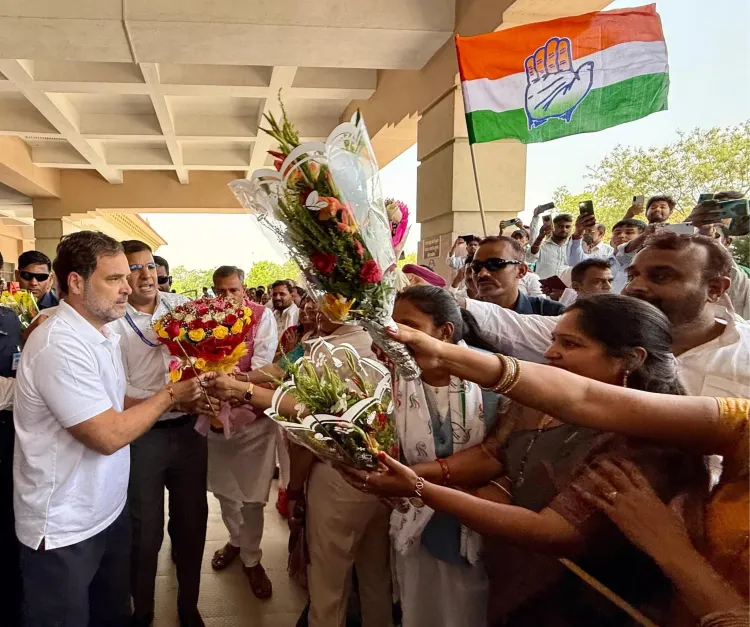What Did Jitan Ram Manjhi Say to Welcome Rahul Gandhi in Bihar?

Synopsis
Key Takeaways
- Jitan Ram Manjhi welcomed Rahul Gandhi with a sharp jab at the past.
- The current governance is said to be a transformation from the previous era.
- Rahul Gandhi criticized the NDA government for law and order issues.
- Manjhi highlighted the safety of visitors in the current Bihar.
- The political dialogue reflects ongoing national issues.
Patna, June 6 (NationPress) Union Minister Jitan Ram Manjhi expressed his welcome for the day-long visit of the Leader of Opposition in Lok Sabha, Rahul Gandhi, in what he referred to as "New Bihar," albeit with a provocative "abduction" remark.
The founder of the Hindustani Awam Morcha-Secular (HAM-S) took to his social media account to share a welcoming message for the Congress MP.
He stated, "Rahul Gandhi is invited to experience the effective governance of Bihar. Today, Bihar is transformed from the days of Lalu Yadav and the Gandhi family two decades ago."
In a contrasting tone, he also reminisced about the "jungle raj" period under Lalu's RJD government, claiming that if Gandhi had visited Bihar 20 years ago, he might have faced the threat of kidnapping by "state-sponsored goons."
Adding a jibe, he remarked, "Had Rahul Gandhi arrived during Lalu ji's reign, he could have been taken hostage, and to rescue him, his mother Sonia Gandhi would have needed to negotiate with Laluji and other criminals at the Chief Minister's residence."
Manjhi's comments come in response to Rahul's sharp criticism of the Nitish Kumar-led NDA government regarding the state's "deteriorating" law and order situation.
Rahul has arrived in Gaya and will proceed to Rajgir.
He accused the double-engine government of Bihar of leaving the populace "miserable" and "helpless" despite two decades in power.
He also criticized the state government regarding the tragic death of a Dalit girl from Muzaffarnagar, who allegedly died while waiting for a hospital bed in Patna.
The Union Minister also pointed out that unlike the "jungleraj of RJD rule," residents from other states no longer fear visiting Bihar, as the state is on a path of steady growth under NDA governance.
"This is a new Bihar where Rahul Gandhi can visit repeatedly without concern, travel freely, and return home safely," he added with a quip.










